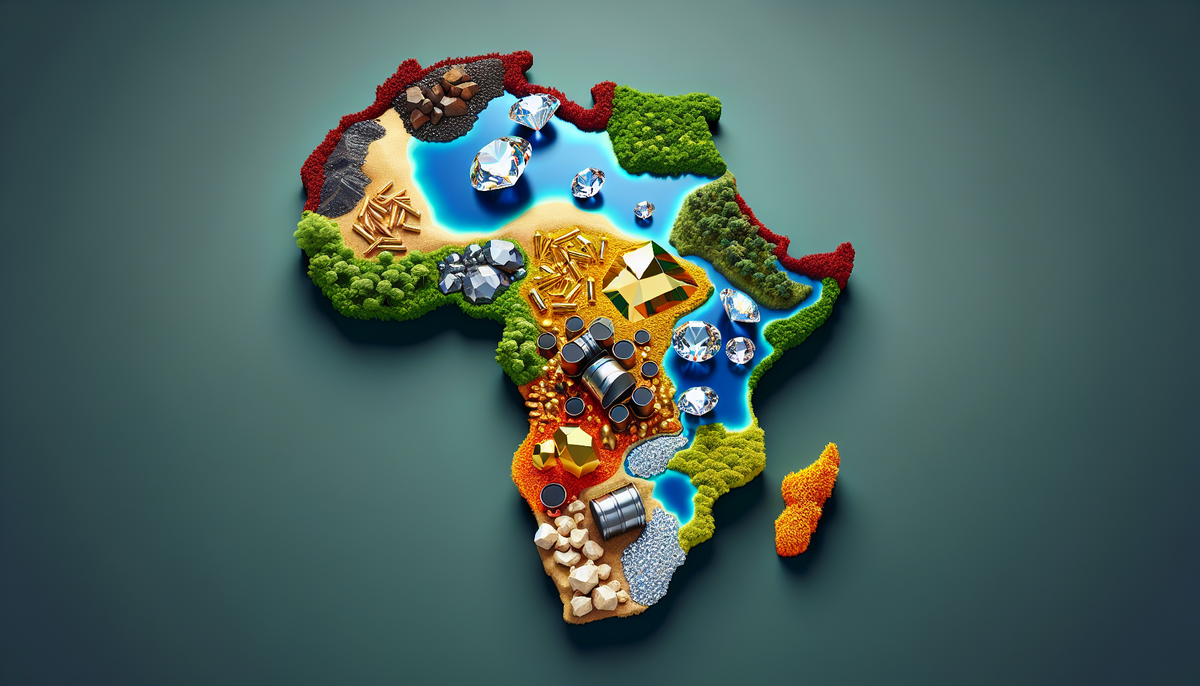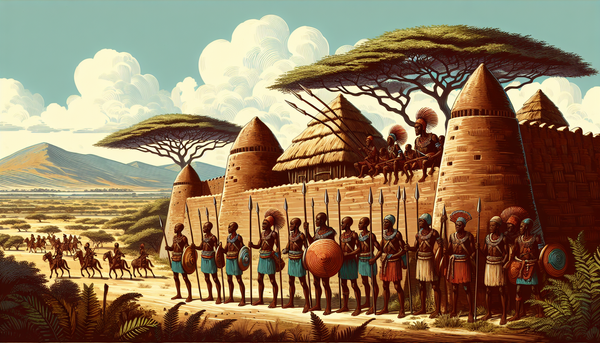The Role of Natural Resources in Shaping African Politics

Impact of Oil Wealth on Political Stability
Oil wealth has profoundly influenced political stability across numerous African nations. Countries such as Nigeria, Angola, and Libya have often experienced a paradox where vast natural resource wealth has failed to translate into socio-economic well-being for their citizens. Instead, the influx of oil revenues has sometimes exacerbated existing political tensions and fostered corruption.
In many instances, governments have become increasingly reliant on oil revenues, leading to a neglect of other economic sectors. This dependence can create vulnerabilities; fluctuations in global oil prices often result in economic instability, which can provoke public dissatisfaction and unrest. Furthermore, the concentration of wealth in the hands of a few elite individuals or groups fosters inequality, with marginalized populations feeling alienated and disenfranchised.
The international interest in oil-rich regions can also lead to external interference, complicating local governance and creating an atmosphere ripe for conflict. In summary, while oil wealth has the potential to improve national economies, it often brings about political volatility, as the struggle for control over resources can ignite rivalry, corruption, and civil unrest, challenging the very foundations of stability in affected nations.
Water Scarcity and Regional Tensions
Water scarcity is an escalating issue in many African nations, primarily driven by climate change, population growth, and unsustainable management practices. The impact of diminishing water resources transcends individual countries, often leading to tensions between neighboring states. In regions where rivers and lakes serve as critical water sources, disputes can arise over water rights, usage, and pollution, heightening geopolitical conflicts.
One prominent example is the Nile River, which is shared by eleven countries. The construction of the Grand Ethiopian Renaissance Dam has created significant tensions between Ethiopia, Sudan, and Egypt, as each nation seeks to secure its share of this vital resource. Similarly, the Zambezi and Niger rivers have also been sites of contention, with upstream projects interrupting the flow and quality of water for downstream countries.
In addition to inter-state conflicts, water scarcity can exacerbate internal disputes, often manifesting in rural communities and urban areas alike. Competition for access to clean water can lead to social instability, as marginalized groups vie for access to this essential resource. Ultimately, addressing water scarcity is not only crucial for sustainable development but also for fostering peace and cooperation among African nations, emphasizing the need for effective, collaborative management of shared water resources.
Mineral Resource Control and Conflict
Mineral resources are foundational to the economies of many African nations, yet their abundance often fuels conflict rather than prosperity. The fight for control over valuable minerals such as diamonds, gold, and coltan can lead to violent struggles between factions, governments, and external interests, significantly impacting political stability.
In countries like the Democratic Republic of the Congo, mineral wealth has been a catalyst for sustained conflict. Armed groups often vie for control over mining territories, financing their operations through the exploitation of these resources. The resulting violence not only devastates local communities but also hampers economic development and governance, creating a vicious cycle of instability.
Moreover, in some cases, corporations and foreign governments exacerbate tensions by exploiting local needs for minerals without equitable benefit-sharing or environmental considerations. This can result in protests and civil unrest, as communities demand their share of the wealth generated by resource extraction.
Furthermore, the lack of transparent governance and regulatory frameworks allows illicit activities, including smuggling and human rights abuses, to flourish in mineral-rich regions. Consequently, addressing the issues of mineral resource control and conflict is vital for achieving sustainable peace and development across the African continent. Effective management and international cooperation are essential to mitigate conflict and promote equitable resource distribution.
Agricultural Lands and Land Reforms
Agricultural lands are integral to Africa's economy and food security, yet land ownership and access remain contentious issues that can ignite conflict and social unrest. In many countries, historical injustices, such as colonial legacies and land dispossession, have resulted in uneven distribution of land, exacerbating inequalities and fueling tensions.
Land reforms are essential for addressing these disparities and promoting equitable access to agricultural resources. However, the implementation of these reforms can be complex and fraught with challenges. In some instances, governments have attempted to redistribute land to landless farmers or marginalized communities, but the process can lead to backlash from established landowners and political elites, resulting in violence and instability.
Moreover, climate change and population pressures are imposing additional challenges on agricultural systems, necessitating efficient land use and sustainable practices. As demands for food production rise, ensuring that smallholder farmers have access to land, resources, and markets becomes increasingly critical.
Successful land reform policies must prioritize inclusivity, transparency, and community involvement to build trust and avoid conflicts. Ultimately, fostering equitable land access is vital not only for agricultural productivity but also for enhancing social cohesion and promoting long-term development across the African continent.
Renewable Energy Resources and Development Policies
As Africa grapples with persistent energy shortages and reliance on fossil fuels, renewable energy resources present a promising avenue for sustainable development. Countries on the continent are increasingly investing in solar, wind, hydro, and geothermal energy as alternatives to traditional energy sources. The abundant availability of sunlight and wind across many regions offers substantial potential for harnessing renewable energy, which can bolster economic growth, enhance energy security, and reduce environmental degradation.
However, the transition to renewable energy is not without its challenges. Development policies must effectively address issues such as infrastructure deficits, funding constraints, and technological barriers. Governments need to create enabling regulatory frameworks that attract both local and foreign investments in renewable energy projects. Collaborative efforts between public and private sectors can foster innovation, create jobs, and improve energy access, particularly in rural areas where traditional grid connections may be impractical.
Moreover, integrating renewable energy into national development strategies can help countries meet their climate goals, promote resilience against climate change impacts, and reduce dependency on imported fossil fuels. Ultimately, fostering a strong renewable energy sector will not only empower local communities but also position African nations as leaders in global sustainability efforts, paving the way for a cleaner, more sustainable future.
Deforestation and Governance Issues
Deforestation poses a significant challenge for many African countries, driven by factors such as agricultural expansion, logging, and infrastructure development. This loss of forest cover not only threatens biodiversity but also exacerbates climate change and undermines the livelihoods of communities that depend on forests for their sustenance and cultural heritage. Ineffective governance and insufficient regulatory frameworks often contribute to the rapid depletion of forest resources.
One of the critical governance issues surrounding deforestation is the lack of enforcement of environmental laws. Corruption and weak institutions can hinder the implementation of policies aimed at protecting forests. Logging companies may exploit loopholes in regulations, engaging in illegal logging practices and prioritizing profit over sustainability. Additionally, local communities often find themselves marginalized in decision-making processes regarding land use, leading to conflicts and resistance.
To combat deforestation, effective governance is essential. This involves strengthening legal frameworks, enhancing transparency, and fostering community engagement in resource management. Empowering local populations through education and participatory approaches can ensure that the voices of those most affected by deforestation are heard, promoting sustainable practices that balance development with conservation. Ultimately, addressing deforestation requires a comprehensive approach that integrates environmental protection with social and economic development goals.
Fisheries Exploitation and Maritime Sovereignty
Fisheries exploitation presents significant challenges for many African nations, particularly as global demand for seafood increases. Overfishing, often exacerbated by illegal, unreported, and unregulated (IUU) fishing practices, threatens the sustainability of marine ecosystems and the livelihoods of coastal communities that rely on fish resources. This depletion of fish stocks not only jeopardizes food security but also exacerbates economic disparities, particularly in developing nations where fisheries contribute substantially to GDP and employment.
The issue of maritime sovereignty further complicates the management of fisheries resources. Many African countries contend with foreign fleets that exploit their waters, often without proper licenses or adherence to sustainable practices. This situation undermines local fishing industries and fuels tensions between nations over territorial waters and fishing rights. Nations with scarce resources for monitoring and enforcing maritime laws frequently find themselves at a disadvantage, leading to conflict with foreign vessels and among neighboring states.
To address these challenges, stronger governance frameworks and regional cooperation are essential. Implementing effective fisheries management practices, enhancing surveillance capabilities, and empowering local fishing communities can help ensure sustainable fisheries. By asserting maritime sovereignty through collaborative governance and equitable resource distribution, African nations can safeguard their marine resources and promote economic resilience in coastal regions.



